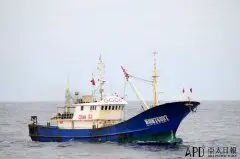"The Africa we want is an integrated, peaceful and prosperous continent," the president of the UN General Assembly, Sam Kutesa, said at a panel discussion here. "It must be a place where employment opportunities are available for those who seek jobs, and where children go to bed with full bellies, rather than hunger pangs."
Monday's high-level panel discussion, organized by the UN Economic and Social Council (ECOSOC), focused on "The Africa We Want: Support of the United Nations System to the African Union's Agenda 2063" -- a development vision that is driven by Africa's own citizens.
The panel marked the start of "Africa Week," which runs till Friday and is held on the margins of the 193-member General Assembly's annual consideration of the landmark New Partnership for Africa's Development (NEPAD), and other vital issues concerning the continent.
With a population of about 1.1 billion people, a combined GDP of more than 2 trillion U.S. dollars, and impressive rates of economic growth, Africa continues to attract investment, said Kutesa, who has previously served as the Ugandan foreign minister.
The rate of return on investment is higher in Africa than in any other developing region, and foreign direct investment inflows into the continent reached over 50 billion U.S. dollars in 2013.
Also attending the panel discussion were Jan Eliasson, the UN deputy-secretary-general, Maged Abdelaziz, the UN under-secretary- general and special adviser on Africa, and several representatives of the African Union.
They all pointed out Africa's progress in achieving the Millennium Development Goals (MDGs), a set of eight anti-poverty targets to be reached by 2015, and developing a common vision for the post-2015 sustainable development agenda.
Over the past decade, Africa's economies grew at a rate of 5.6 percent on average, making it the world's fastest growing region after East Asia.
"To further accelerate this growth, African countries will need to modernize their agriculture, industrialize more, add value to their vast natural resources, innovate and create more employment opportunities especially for the youth," said Kutesa.
Addressing the challenge of inadequate infrastructure, especially energy, transportation and technology, remains critical. Access to healthcare and other basic social services is still low. And vocational training and skills development training remain inadequate.
Kutesa commended the positive work of NEPAD for its huge potential to link and open up Africa for trade and investment.
"There are huge transformative projects for which we must mobilize financing. The support of the UN System, the international community and continued partnership with the African countries remains instrumental," said Kutesa.
Eliasson, also addressing the ECOSOC panel discussion, reiterated the UN's commitment to work "hand in hand" with Africa on its most pressing challenges including assisting in the response to the current unprecedented Ebola outbreak in West Africa.
The United Nations has deployed its first-ever emergency health mission -- the United Nations Mission for Ebola Emergency Response (UNMEER), which is "working hard to make a different on the ground: treat the infected, preserve stability, prevent the spread of Ebola and ultimately defeat it."
Meanwhile, he outlined other initiatives aimed at making a difference in Africa, specifically the Every Woman Every Child initiative which has already advanced women's and children's health in the region.
On energy, he said that leaders are coming together to scale up access to clean energy, adding that the Call to Action on Sanitation is catalyzing action in providing access to toilets, which 2.5 billion people currently lack.
The Africa Climate-Smart Agriculture Alliance will help ensure that increased productivity and food security go hand-in-hand with decreased carbon emissions for nearly 25 million farming households by 2025, he said.
On a regional level, the UN will continue to support the Economic Commission for Africa which is working closely with the AU to determine capacity development needs for the implementation of Agenda 2063, he said.
In the area of peace and security, Eliasson said that the UN continues to support capacity building and to develop joint policies under the several AU-UN initiatives. At the same time, he said, the United Nations continues to galvanize the support of the international community for several vulnerable countries, including Somalia, Mali and the Central African Republic.
 简体中文
简体中文

